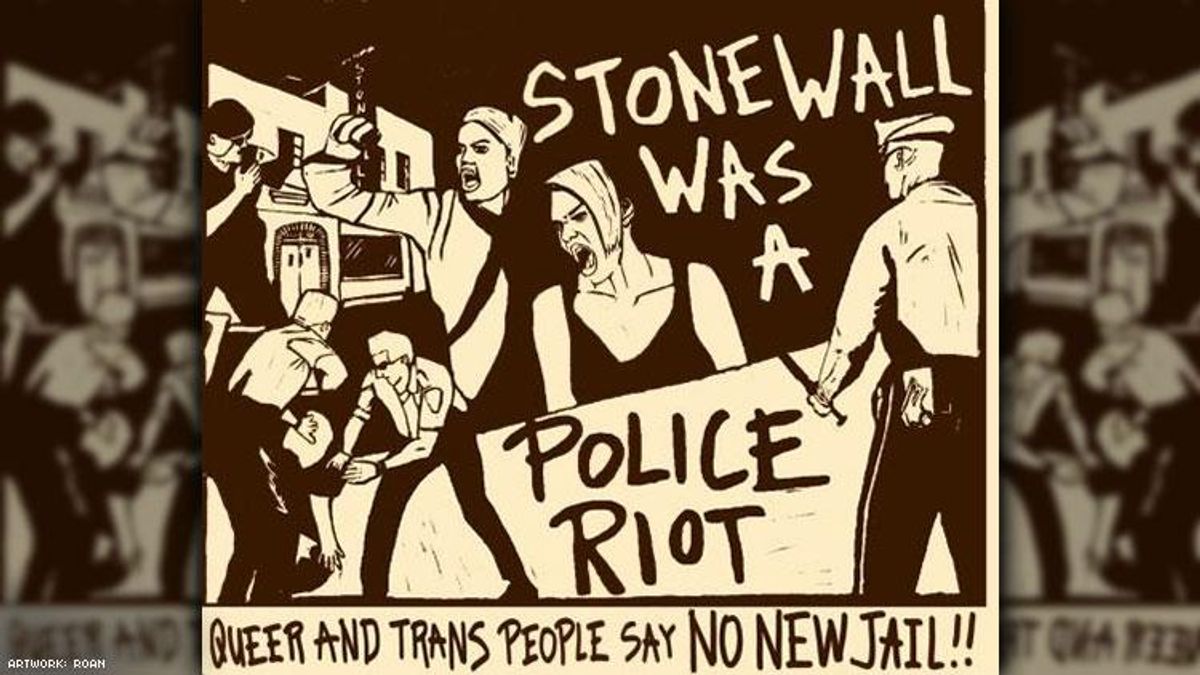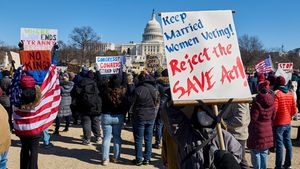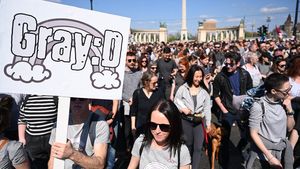The Stonewall rebellion was not a "peaceful protest." Queer and transgender people threw shoes and bottles at cops who routinely raided gay bars, beat and raped queer and trans people. Today, under the direction of a multi-million dollar Pride industry, Stonewall is celebrated with big parades where police, the military, banks, and politicians wave rainbow flags. In some cities, the cops roll out special rainbow-painted police cars. The radical acts of rage and disobedience against illegitimate authority that erupted at Stonewall are now reflected back as a story about "progress" in which the institutions that run our lives through coercion and violence claim to be "gay friendly."
We cannot consider the legacy of Stonewall without considering its context. Stonewall happened in a period of global uprising against racism, colonialism, war, poverty, and gender norms. Across the United States, people were rioting against the police, occupying government and university buildings, providing illegal abortions to each other, striking, creating free clinics, sabotaging military equipment, breaking people out of prison, and burning down jails.
A pervasive sense of urgency and disillusionment with official channels for change-making resulted in widespread participation in all kinds of tactics to take down harmful systems and build new ways of meeting basic needs. The summers of the late 1960s were filled with Black rebellions in cities across the U.S., with communities emboldened to rise up against police violence. Radical struggles for justice led by teachers, students, workers and tenants around the country were escalating tactics, winning big changes and inspiring movements.
In the wake of this rebellious era, new cultural norms about social change demobilized us. Radical movements were criminalized. Social movement histories were erased. Militant tactics were delegitimized and a new imperative for resistance to look "peaceful" and respectable. In more recent years, most of us have become more isolated, expressing our views on social media or through donations to non-profits but not getting involved in projects to actually support people facing harm in our communities or tear down unjust systems.
Social justice issues have become siloed, undermining our ability to build a radical understanding of the systems we live under. This allows politicians, institutions, and corporations to co-opt symbols of queer and trans resistance and make it look like we are winning a victory by being accepted, when actually they are winning good PR by claiming to include us while their actions continue to endanger our lives. Layleen Polanco, a 27-year-old Black Latinx trans woman was found dead in her jail cell in New York City this month. The police put her there, and no number of rainbow-painted cop cars should distract us from that fact.
As conditions worsen in the U.S.--from the brutality of border enforcement to expanding militarism, climate chaos-induced disasters, rising rents and worsening poverty--more people are angry and afraid. Now is the time to strategize about what helps us mobilize and what gets in our way. We can take inspiration from the Stonewall era, a time of widespread mobilization and growing solidarity. We need to get back to building organizations where we work together on concrete projects to dismantle harmful systems, support people endangered by current conditions, and create new ways of surviving together. Digging in to mutual aid work--where we actually help each other survive--is the best response to our fear and anger about the current conditions.
Helping each other survive is mobilizing. It builds relationships, helps us learn more about systems and conditions we are invited to ignore, and directly addresses suffering. If we care about queer and trans people, it is not enough to post a rainbow selfie or attend a parade (or to celebrate that the cops are doing that). We need to support queer and trans prisoners, open our homes to queer and trans asylum seekers and people coming out of prisons and foster care, organize support for prisoners' and detainees' families, and collaboratively work to address all the other unmet survival needs in our communities.
Stonewall was a proud moment of bold action taken by people living in a time of mobilization and militancy. Now is the time to honor that legacy with our own action.
Dean Spade is a transgender writer, teacher, and activist. He is the author of Normal Life: Administrative Violence, Critical Trans Politics and the Limits of Law. His video projects and writing are available at deanspade.net.
RELATED: Op-ed: We Are Responsible for Carrying the Torch Lit at Stonewall

























































































